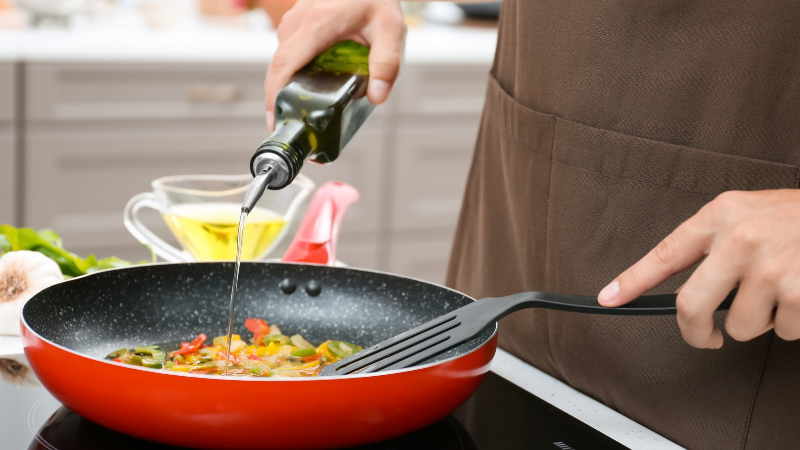(How to buy virgin coconut oil like an insider…)
Did you know that buying virgin coconut oil (VCO) is not as simple as just going to the store or shopping online and choosing the first jar you see?
A quick trip to the grocery store, health food store, or pet store will reveal that there are countless different brands of VCO to choose from. And at first glance, it may seem impossible to pick the best virgin coconut oil for dogs, cats, birds, or yourself.
Undoubtedly, there are differences in quality. And as with many products, the old adage applies: "you get what you pay for". But while price may be a factor, it doesn't necessarily mean that the most expensive product is the best. Because let's not forget, clever marketing can help drive up the price of just about any product!
So, how do you know if you're buying high-quality VCO? And how can you be sure you're getting the best value for your money? That's what this guide is all about.
Keep on reading to find out how to buy virgin coconut oil like an insider. By the time you finish reading this guide, you'll know exactly what to look for (and what to avoid) when shopping for VCO.
Ready to get started? Then let's dive in!
Coconut Oil Terminology
As with any product, when purchasing VCO, it helps to understand common terminology used in the industry. In this section of the guide, we'll look at the meaning of the most important terms you need to know.
The most basic information:
1) USDA-Certified Organic – if the USDA-certified organic seal is displayed on the label, check to make sure that the National Organic Certifier (NOP) is listed on the label as well. This is usually listed after the manufacturer's name. If no NOP organization is listed, then the USDA organic seal is not valid. The manufacturer should be able to tell you who certifies their coconut oil as organic, as well as show you a copy of their latest organic certificate.
2) Non-GMO Verified – if the Non-GMO Project Verified seal is displayed on the label, call the company to ask who their Non-GMO Technical Administrator (TA) is. The Non-GMO Project works with four independent Technical Administrators (TAs) to provide unbiased product evaluations according to the Non-GMO Project Standard. The manufacturer should be able to tell you who verified their coconut oil, as well as show you a copy of their latest certificate.
3) "Raw", "Cold-Pressed" – these are both great terminologies to display on the label, and most coconut oil companies know that they're what consumers look for when selecting a high-quality virgin coconut oil. However, these terms are not regulated, and anyone can put them on the label. The solution? Call the manufacturer and ask them these basic questions:
- What is the highest temperature reached when processing the VCO?
- What is your coconut oil extraction method?
- What is the moisture content level of the coconut oil? (Hint: it determines whether or not your coconut oil is truly a virgin coconut oil).
If the manufacturer is not able to answer these questions to your satisfaction, you may want to look elsewhere for your virgin coconut oil needs. Check out our post, Understanding Virgin, Refined, and Unrefined Coconut Oil: How They’re Made Makes a Difference, for detailed information on how we manufacture our oil.
4) "Extra-Virgin" – the term "extra virgin" has no relevance to coconut oil. With olive oil, extra virgin means the first pressing of the olives to extract the oil. However, coconut meat is only pressed once. For Virgin Coconut Oil, the term "virgin" means unrefined. This means that solvents, hexanes, and other chemicals should not be used to extract the oil.
Know What Questions to Ask
One of the best ways to know about a specific brand of coconut oil is to call the manufacturer and ask the hard questions. It should be noted that many brands use private label suppliers to supply their coconut oil, so they may not know about specific manufacturing processes. These suppliers buy their oils from multiple sources. At the very least, the company should be able to supply a certificate of analysis for every batch of coconut oil.
The real in-depth, nitty-gritty information:
1) Single source? Country of origin listed – Some VCO list multiple countries of origin. There are different soil types, farming and harvesting methods, and schedules that can affect the quality of the coconut oil. Choose one with a single source listed.
2) Coconut manufacturer facility – Can you trace who actually makes the coconut oil? Aside from the coconut farm, many facilities make coconut oil. The product should be produced in a facility free of dairy, eggs, fish, peanuts, shellfish, soy, tree nuts, or wheat. If it's not, there's a good chance the oil has been contaminated with one or more of these potential allergens.
3) Lot # listed on the jar? Aside from the Best By date, every batch of coconut oil should have a lot number listed. This enables the manufacturer to trace the valid information of the coconut oil, should a recall be necessary.
4) Certificate of Analysis and product specification sheet – These should be available per Lot # for every batch of coconut oil. The coconut oil manufacturer should have these available.

About CocoTherapy Virgin Coconut Oils
The founders of CocoTherapy come from a coconut-producing family, where coconuts have been a big part of their family for three generations. From the tree to the facility, we know where our coconuts come from and exactly how our oil is produced.
All our coconuts come from our family farm and are processed in our facility, where only coconut oil is produced. This helps us avoid the risk of cross-contamination and produce a consistently high-quality product.
Learn more about us, and discover how we're different. Happy virgin coconut oil shopping!
Helpful resources:
Understanding Virgin, Refined, and Unrefined Coconut Oil: How They’re Made Makes a Difference
What are the Differences between Virgin, Refined, and Unrefined Coconut Oil?
Fake Oils: Virgin Olive Oils Can Fake it, and So Can Virgin Coconut Oils



